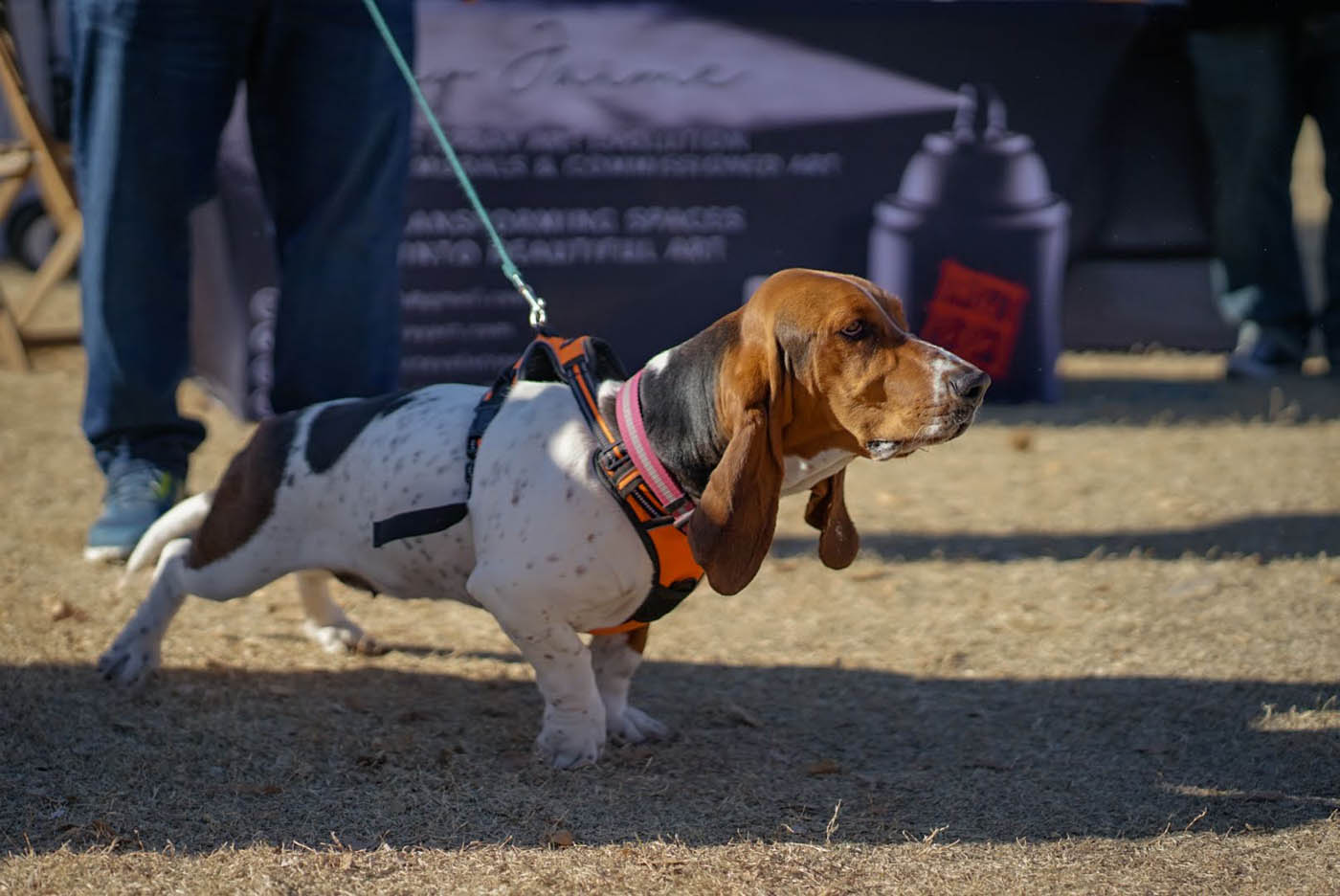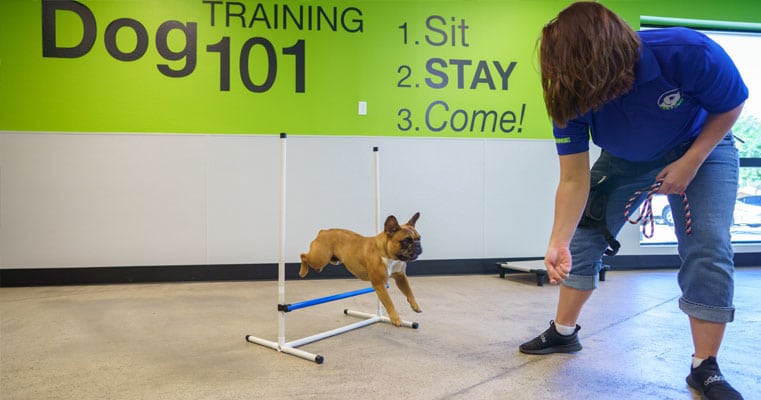Unlock Your Pet dog's Possible: Proven Pet Training Approaches for Success
Effective dog training is a nuanced process that depends upon comprehending canine habits and utilizing clinically backed methods. dog training charlotte nc. By including favorable support, developing clear commands, and focusing on socializing, pet dog owners can cultivate an efficient connection with their family pets. Nevertheless, difficulties commonly emerge that call for customized options and an individual technique. Checking out these verified techniques reveals not just the possibility for behavior improvement but additionally the much deeper bond that can be developed between proprietor and pet dog. What necessary techniques must be considered to truly open your canine's potential?
Recognizing Pet Dog Actions
Understanding pet habits is essential for efficient training and fostering a favorable relationship in between dogs and their proprietors. A comprehensive understanding of canine body language, vocalizations, and social communications is vital for recognizing their emotions and demands. Dogs interact primarily with non-verbal signs; as an example, a wagging tail might indicate enjoyment, while pinned ears can signify fear or submission.

Furthermore, environmental elements play a significant role in shaping a canine's behavior. Changes in regular, brand-new environments, or the existence of unknown individuals can bring about stress or anxiousness in pets. Identifying these triggers allows owners to mitigate damaging responses and establish ideal training strategies.
Ultimately, a deep understanding of pet habits lays the foundation for successful training approaches, enhancing both behavior and the total bond in between the pet dog and its owner. dog training near me. This knowledge is important for fostering a well-adjusted, satisfied canine buddy
Positive Support Techniques
Effective training depends heavily on favorable reinforcement strategies, which have been revealed to produce significant cause shaping wanted habits in dogs. This technique involves compensating a canine for showing certain behaviors, consequently enhancing the chance that these behaviors will certainly be repeated. Benefits can take various types, consisting of treats, appreciation, playthings, or playtime, depending upon what motivates the private pet.

It is necessary to gradually phase out incentives as the pet dog learns the actions, transitioning to recurring reinforcement. This technique keeps the actions in time while avoiding dependence on consistent rewards. By concentrating on favorable reinforcement, instructors can cultivate a trusting partnership with their canines, advertising a participating and healthy training environment that improves overall obedience and performance.
Developing Constant Commands
A fundamental element of successful pet dog training is the facility of regular commands. Uniformity in commands is important for efficient communication in between the fitness instructor and the pet. When commands are uniform, pet dogs discover to connect specific words with wanted habits, which increases the training process and boosts understanding.
To establish constant commands, it is essential that all household members utilize the same terminology and motions. If one individual makes use of "sit" while one more states "rest down," it can create confusion for see this site the pet dog. Select clear, distinct words for commands and make sure every person involved in the canine's training sticks to these selections.
Additionally, repeating is vital. Reinforce commands through regular technique, guaranteeing that the pet dog obtains enough opportunities to respond properly. When a pet dog efficiently adheres to a command, immediate positive reinforcement ought to comply with. This might be in the kind of deals with, appreciation, or play, strengthening the link in between the activity and the command.
Last but not least, hold your horses. Developing regular commands requires time and initiative. With devotion and quality, you will assist your canine develop a solid understanding of assumptions, eventually resulting in a well-behaved companion.
Socializing and Direct Exposure
Socializing a pet is necessary for promoting a well-adjusted and positive friend. This procedure involves revealing your pet dog to a range of environments, individuals, and various other animals to create their social abilities and adaptability. Early socialization, preferably between the ages of 3 to fourteen weeks, is vital, as it prepares for a dog's future behavior.
Throughout socialization, aim to give positive experiences in various settings, such as parks, busy roads, and homes with other pet dogs. Present your dog to different stimuli, consisting of sounds, views, and smells, making certain that each encounter is rewarding. This direct exposure aids alleviate fear and anxiousness, leading the way for a more resistant dog.
Involving in regulated group play sessions with various other canines can additionally enhance social abilities, teaching your family pet appropriate interactions and borders. Always monitor your pet dog's comfort level throughout these experiences, gradually boosting direct exposure as their confidence expands. Bear in mind, the goal is to produce a well-rounded family pet that grows in diverse circumstances, advertising a harmonious connection with both people and various other animals. Prioritizing socialization will substantially add to your dog's general joy and actions throughout their life.
Conquering Common Educating Obstacles

Dogs may battle to focus in unfamiliar or hectic setups. Progressively desensitize your dog to diversions by beginning training in a quiet environment and slowly presenting even more stimuli as they become efficient.
In addition, behavioral issues like jumping or extreme barking can come to be irritating. Address these by teaching alternate habits, such as resting comfortably when welcoming visitors. Uniformity and patience are important; strengthen wanted actions continually and stay clear of abuse, which can lead to confusion.
Lastly, acknowledge that each canine is special, and training timelines might differ. Dressmaker your strategy to your pet's specific demands, and look for specialist advice if essential. With willpower and the appropriate approaches, overcoming these obstacles can lead to a well-trained, happy canine companion.
Conclusion
In conclusion, opening a pet's potential necessitates an extensive approach that incorporates an understanding of canine behavior, the application of favorable support strategies, and the facility of consistent commands. Early socialization and direct exposure to varied atmospheres even more enhance a pet's flexibility and confidence. By addressing usual training obstacles with customized techniques and persistence, a harmonious and cooperative relationship in between canine and handler can be cultivated, eventually resulting in a mannerly buddy efficient in thriving in numerous circumstances.
Effective pet training is a nuanced process that pivots on comprehending canine behavior and using clinically backed approaches.Comprehending dog actions is necessary for effective training and promoting a positive partnership between pets and their owners.Reliable training relies greatly on positive reinforcement strategies, which have been revealed to yield considerable outcomes in shaping wanted habits in pets. When commands are uniform, pet dogs learn to connect details words with desired actions, which accelerates the training procedure and enhances understanding.
In final thought, opening a canine's prospective necessitates a detailed approach that integrates an understanding of canine actions, the application of positive reinforcement methods, and my dogs best friend ni the facility of regular commands.